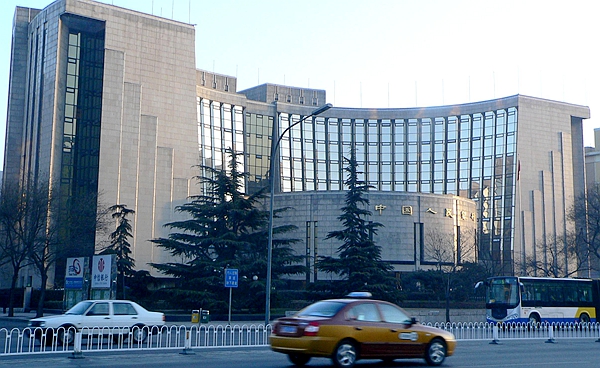Monetary policy change to greatly impact financing market
china.org.cn / chinagate.cn by Yu Fenghui, February 10, 2017 Adjust font size:
|
|
|
People's Bank of China headquarters in Beijing [File photo] |
Just after the week-long Spring Festival holiday, China's central bank raised the interest rate on open-market operations reverse repurchase agreements by 10 basis points on the first trading day of the Year of the Rooster. It also raised the lending rates on its standing lending facility (SLF) short-term loans.
The central bank raised the interest rates for one-year and six-month medium-term lending facilities (MLF) loans by 10 basis points to 3.1 percent and 2.95 percent, respectively on Jan. 24.
So the central bank's funding tools compatible with international standards have risen in two weeks, twice. This is an outstanding move that shows wisdom and brilliance.
The liquidity injection will ensure that financial institutions have an abundance of capital to provide the market's liquidity and the funds needed for economic development. At the same time, the raising of rates will prevent the enlargement of currency devaluation expectation caused by liquidity injection. The central bank uses internationally recognized tools to change the rates so as to avoid an excessive impact on market, while this also means that China's tool for adjusting rates has reached international standards.
But does the raise of rates by the central bank indicate that China's monetary policy is going to change? Two things are for sure: First, the monetary policy will be tightened thoroughly. Second, China has entered a passage to raise interest rates.
As the Federal Reserve of the United States has started to tighten its monetary policy since the latter half of 2015 and developed countries monetary policies also tightened due to inflation pressure globally, China could not stand alone against the trend.
At least two factors in China asked for a tightened monetary policy. One is the demand of deleveraging in China's economy; the other is because of the straight climb of China's inflation rate, which will probably reach 2.4 percent in January 2017. So China's monetary policy must change.
And the changes of international and domestic monetary policies will directly and greatly affect economic and financial markets, especially with regards to the various investing and financing actions by economic entities, such as resident enterprises.
Currently, the resident monetary management and investment market are still fraught with big demands. How can you make your investments and assets maintain their value?
The general strategy is to choose the investing areas, markets and products that can strongly resist inflation and risks and to act as a conservative investor. The options include investments in gold, silver, national bonds, bank financial products, major internet financial products, insurance products and fund products.
The U.S. dollar and USD assets can also be invested in, while the Australian dollar and Japanese yen are okay as alternative options.
The best option for anti-inflation is investing in real estate properties in areas where neighboring housing prices have potential to rise greatly.
Stock market and futures market now have big risks, but individual investors can still choose high-performance stocks or the stocks that have great potential for growth. Value investing may be the main theme for China's stock market.
Yu Fenghui is an economist, columnist, financial and economic critic.
This post was first published in Chinese and translated by Zhang Rui.
Opinion articles reflect the views of the authors, not necessarily those of China.org.cn.
